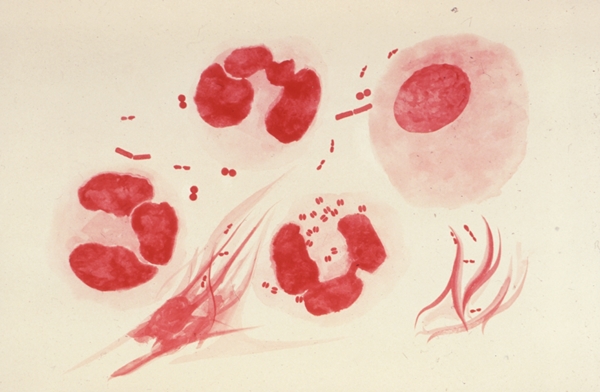16 Jan. 2023. A vaccine against gonorrhea given as a nasal spray is shown to generate protective immune responses in lab mice of both sexes, and in females similar to an intravaginal vaccine. Findings from the preclinical study are reported in the 22 Dec. 2022 issue of the journal mSphere, published by American Society of Microbiology, testing a vaccine developed by companies in the Netherlands and U.S.
Gonorrhea is a common sexually-transmitted disease among teens and young adults. While drugs are available to treat gonorrhea, Neisseria gonorrhoeae bacteria responsible for the disease are becoming more resistant to current treatments, making the disease more difficult to treat. Centers for Disease Control and Prevention says in 2020 nearly 678,000 cases of gonorrhea were reported in the U.S.
The experimental vaccine tested in the study, code-named Avacc 11, is made by biotechnology company Intravacc B.V. in Bilthoven, the Netherlands, working with another biotech, Therapyx Inc., in Buffalo, New York. Avacc 11 is made with the Intravacc technology called outer-membrane vesicles or OMVs, which in nature are circular particles containing antigens released by gram-negative bacteria, responsible for many infectious diseases. The company says it creates synthetic OMVs with added properties for invoking a precise immune response, lower toxicity, and increased yield, including those designed for nasal sprays to generate an immune response in mucous membranes.
For Avacc 11, Intravacc is partnering with Therapyx, commercializing a technology licensed from Brown University on protein micronization and encapsulation. The company’s process, called Exstam, formulates therapeutic proteins into microscale particles encapsulated in biodegradable polymers for longer shelf life and greater stability. One of the company’s lead products is an encapsulated form of immune cytokine or enzyme interleukin-12 that Therapyx says can be given as an oral drug, inhaled, or delivered to mucous membranes.
Developed under an NIAID contract
As reported in Science & Enterprise in Oct. 2022, Intravacc received a $14.6 million contract from National Institute of Allergy and Infectious Diseases or NIAID to develop a nasal spray vaccine against gonorrhea. Intravacc is partnering with Therapyx on development of the vaccine that delivers OMVs and interleukin-12 micro-particles to protect against Neisseria gonorrhoeae bacteria infections.
As an intermediate step, researchers from the two companies first tested the formulation as an intravaginal vaccine with female mice. Results show the intravaginal vaccine generates antibodies in the female mice blood, saliva, and vaginal fluids. Likewise, lymph nodes in the mice produce more interferon-gamma, another immune system cytokine. When formulated as a nasal spray, Avacc 11 produces similar antibody responses in female and male mice tested, when compared to a placebo of empty micro-particles.
A challenge test of the vaccine, where inoculated female mice are exposed to gonorrhea-causing bacteria shows Avacc 11 protects against infection when given as either a nasal spray or intravaginal form. The authors say that protection extends to a variety of Neisseria gonorrhoeae strains. The researchers also refined the Avacc 11 formulation to remove potentially toxic compounds generated by Neisseria gonorrhoeae OMVs, as well as the membrane protein Rmp that blocks antibodies.
“This intranasal gonococcal vaccine,” says Intravacc CEO Jan Groen in a company statement, “is more suitable to fight gonorrhea infections, which are becoming increasingly resistant to antibiotic treatments.” According to a funding document from NIAID, the company plans to continue safety and efficacy testing in lab animals, as well as prepare for an investigational new drug application, in effect a request to begin clinical trials, with the Food and Drug Administration.
More from Science & Enterprise:
- CEPI Assessing Advanced RNA Nanoparticle Vaccine
- Covid-19 Vaccine Patch Clinical Trial Begins
- RSV Nose Drops Vaccine Gets FDA Fast Track Tag
- Algae-Grown Non-Needle Malaria Vaccine in Preclinical Test
- Trial Shows Oral Covid-19 Vaccine Produces Antibodies
We designed Science & Enterprise for busy readers including investors, researchers, entrepreneurs, and students. Except for a narrow cookies and privacy strip for first-time visitors, we have no pop-ups blocking the entire page, nor distracting animated GIF graphics. If you want to subscribe for daily email alerts, you can do that here, or find the link in the upper left-hand corner of the desktop page. The site is free, with no paywall. But, of course, donations are gratefully accepted.
* * *


 RSS - Posts
RSS - Posts
You must be logged in to post a comment.